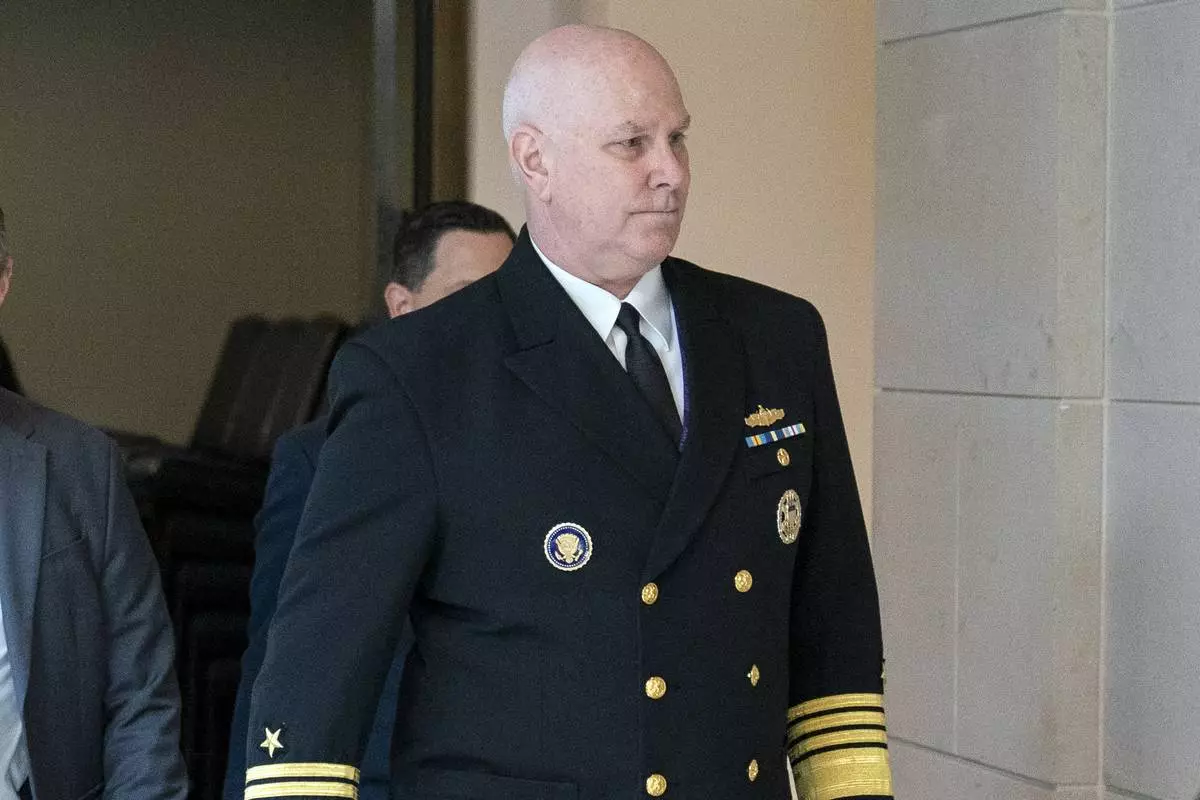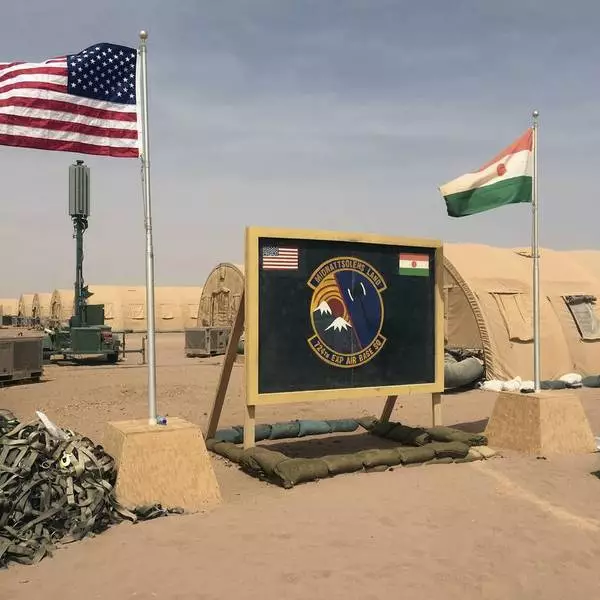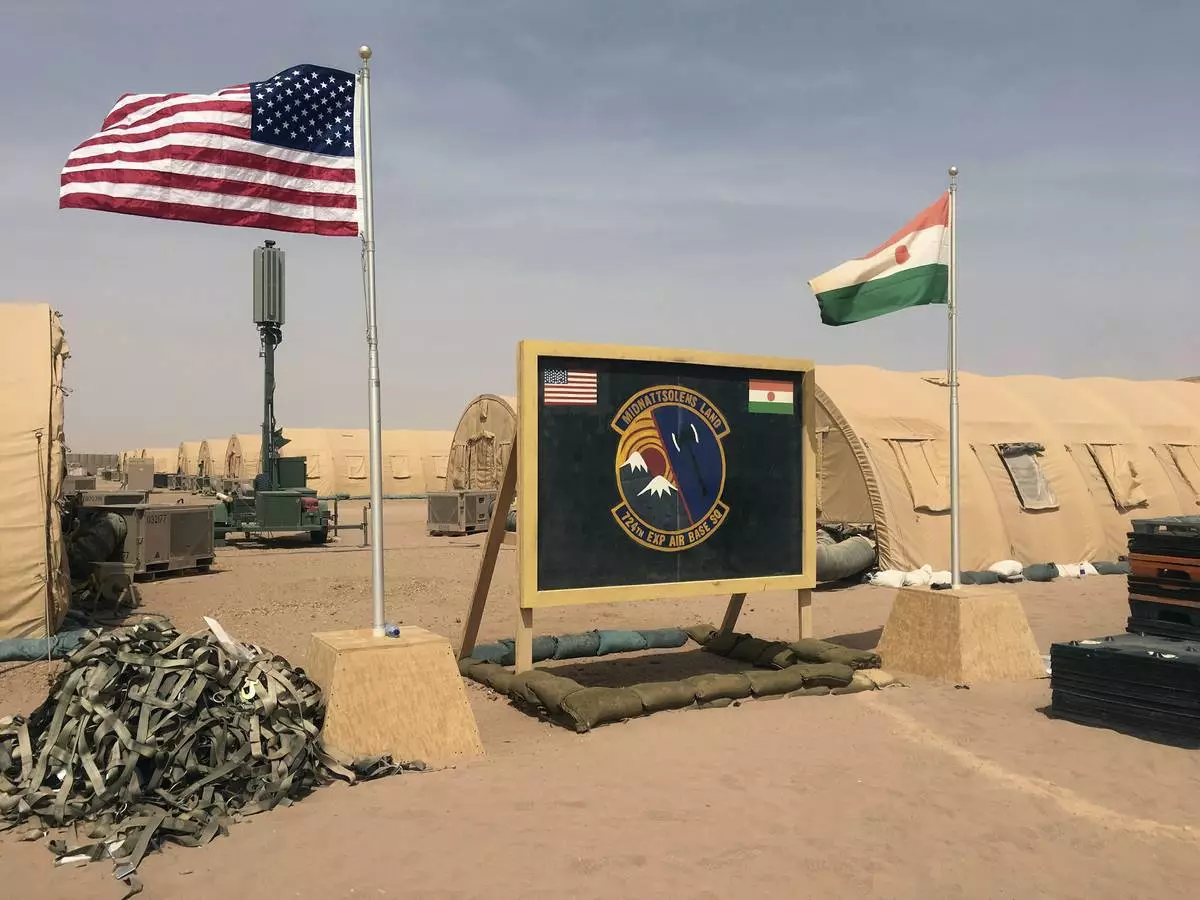A Florida man who mailed crudely made pipe bombs to prominent critics of President Donald Trump said he abused steroids for over 40 years, an issue his lawyers say they'll cite at sentencing.
Cesar Sayoc made the assertion in lengthy and rambling letters to a federal judge that were posted in his court case file Tuesday.
Sayoc, 57, pleaded guilty to explosives-related charges in March and faces a mandatory 10-year prison term and up to life in prison when he's sentenced Aug. 5. His lawyers told the judge in a different letter that a psychiatrist with specialized knowledge of the effects steroids can have on mental health will compose a report on Sayoc's extensive steroid use prior to that sentencing date.
He said he never intended to injure anyone when he mailed 16 rudimentary bombs to CNN offices and numerous Democrats, including former presidential nominee Hillary Clinton, former President Barack Obama, former Vice President Joe Biden, members of Congress and actor Robert De Niro.
The bombs were mailed to addresses in New York, New Jersey, Delaware, California, Atlanta and Washington, D.C., and began turning up over a five-day stretch weeks before the 2018 midterm elections.
No bombs exploded, which Sayoc said was by design, describing the devices as little more than fireworks. Prosecutors plan to submit a detailed report on the explosives prior to sentencing.
In his letters, Sayoc told U.S. District Judge Jed S. Rakoff that he had abused steroids for more than four decades and was using 274 different supplements and vitamins along with "heavy amounts of steroids" before his arrest.
He wrote that before he mailed explosives, his idea "first was how to tone down the liberal left violence platform." He wrote that he believed prominent Democrats were encouraging violence, saying he had been attacked personally — including as he returned to his hotel after attending Trump's inauguration.
Sayoc also asserted "leftist leadership" had encouraged followers to commit violence that caused $1,800 worth of damage to his van, including slashed tires, sliced fuel lines, broken windows and doors and damage to his battery that a mechanic told him could have caused it to explode.
Sayoc has been held without bail since his arrest in late October outside a South Florida auto parts store. He had been living in his van, which was plastered with Trump stickers and images of crosshairs superimposed over the faces of Trump opponents.
Since being imprisoned, Sayoc said, he has heard voices and suffered various psychological effects, including depression, high anxiety, vertigo and loneliness.
Explaining his crimes, he said he was never political until he was looking at Facebook on his phone one day when "Donald J. Trump popped up ..."
He likened attending a Trump rally to a newfound drug.
"I was getting so wrapped up in this new found fun drug," he said in one handwritten letter.
Now, though, he says he has sworn off politics.
"Politics is dirty, ruthless, deadly," he wrote. "It is a poison. It will drive you crazy like it or not."
WASHINGTON (AP) — The United States will pull the majority of its troops from Chad and Niger as it works to restore key agreements governing what role there might be there for the American military and its counterterrorism operations, the Pentagon said Thursday.
Both African countries have been integral to the U.S. military’s efforts to counter violent extremist organizations across the Sahel region, but Niger’s ruling junta ended an agreement last month that allows U.S. troops to operate in the West African country. In recent days, neighboring Chad also has questioned whether an existing agreement covered the U.S. troops operating there.
The U.S. will relocate most of the approximately 100 forces it has deployed in Chad for now, Pentagon press secretary Maj. Gen. Pat Ryder said Thursday at a press briefing.
“As talks continue with Chadian officials, U.S. AFRICOM is currently planning to reposition some U.S. military forces from Chad, some portions of which were already scheduled to depart. This is a temporary step as part of the ongoing review of our security cooperation, which will resume after Chad’s May 6th presidential election," Ryder said.
In Niger, the majority of the 1,000 U.S. personnel assigned there also are expected to depart, Ryder said.
U.S. and Nigerien officials were expected to meet Thursday in Niger's capital, Niamey, “to initiate discussions on an orderly and responsible withdrawal of U.S. forces," the State Department said in a statement late Wednesday. Follow-up meetings between senior Pentagon and Niger officials are expected next week “to coordinate the withdrawal process in a transparent manner and with mutual respect,” Ryder said.
Called status-of-forces agreements, these deals allow the U.S. to conduct critical counterterrorism operations within both countries' borders and have supported military partner training. The reversals have prompted concern that U.S. influence in Africa is losing ground to overtures from Russia and China.
Relations have frayed between Niger and Western countries since mutinous soldiers ousted the country’s democratically elected president in July. Niger’s junta has since told French forces to leave and turned instead to Russia for security.
Earlier this month, Russian military trainers arrived to reinforce the country’s air defenses and they brought Russian equipment, which they would train Nigeriens to use.
Niger plays a central role in the U.S. military’s operations in Africa’s Sahel region, a vast region south of the Sahara Desert. Washington is concerned about the spread of jihadi violence where local groups have pledged allegiance to al-Qaida and the Islamic State groups.
Niger is home to a major U.S. air base in the city of Agadez, about 920 kilometers (550 miles) from the capital, which is used for manned and unmanned surveillance flights and other operations. The U.S. also has invested hundreds of millions of dollars in training Niger’s military since beginning operations there in 2013.
Officials from the State Department, U.S. Africa Command and the Pentagon will work with Chad’s government to make the case for U.S. forces to continue operations, Joint Chiefs Vice Chairman Adm. Christopher Grady said Wednesday.
Grady told The Associated Press in an interview that if both countries ultimately decide the U.S. cannot remain, the military will have to look for alternatives to run counterterrorism missions across the Sahel.
“If we are asked to leave, and after negotiations that’s the way it plays out, then we are going to have to recalculate and figure out a new way to do it,” Grady said.
The news of the departure of U.S. forces in Chad was first reported by The New York Times.

FILE - Vice Chairman of the Joint Chiefs, Adm. Christopher Grady, right, arrives for a closed door briefing about the leaked highly classified military documents, on Capitol Hill, April 19, 2023, in Washington. Grady says there's been no final decision on whether or not all U.S. troops will leave Niger and Chad. (AP Photo/Alex Brandon, File)

US to pull troops from Chad and Niger as the African nations question its counterterrorism role

US to pull troops from Chad and Niger as the African nations question its counterterrorism role

FILE - A U.S. and Niger flag are raised side by side at the base camp for air forces and other personnel supporting the construction of Niger Air Base 201 in Agadez, Niger, April 16, 2018. The United States is attempting to create a new military agreement with Niger that would allow it to remain in the country, weeks after the junta said its presence was no longer justified, two Western officials told The Associated Press Friday April 19, 2024. (AP Photo/Carley Petesch, File)













